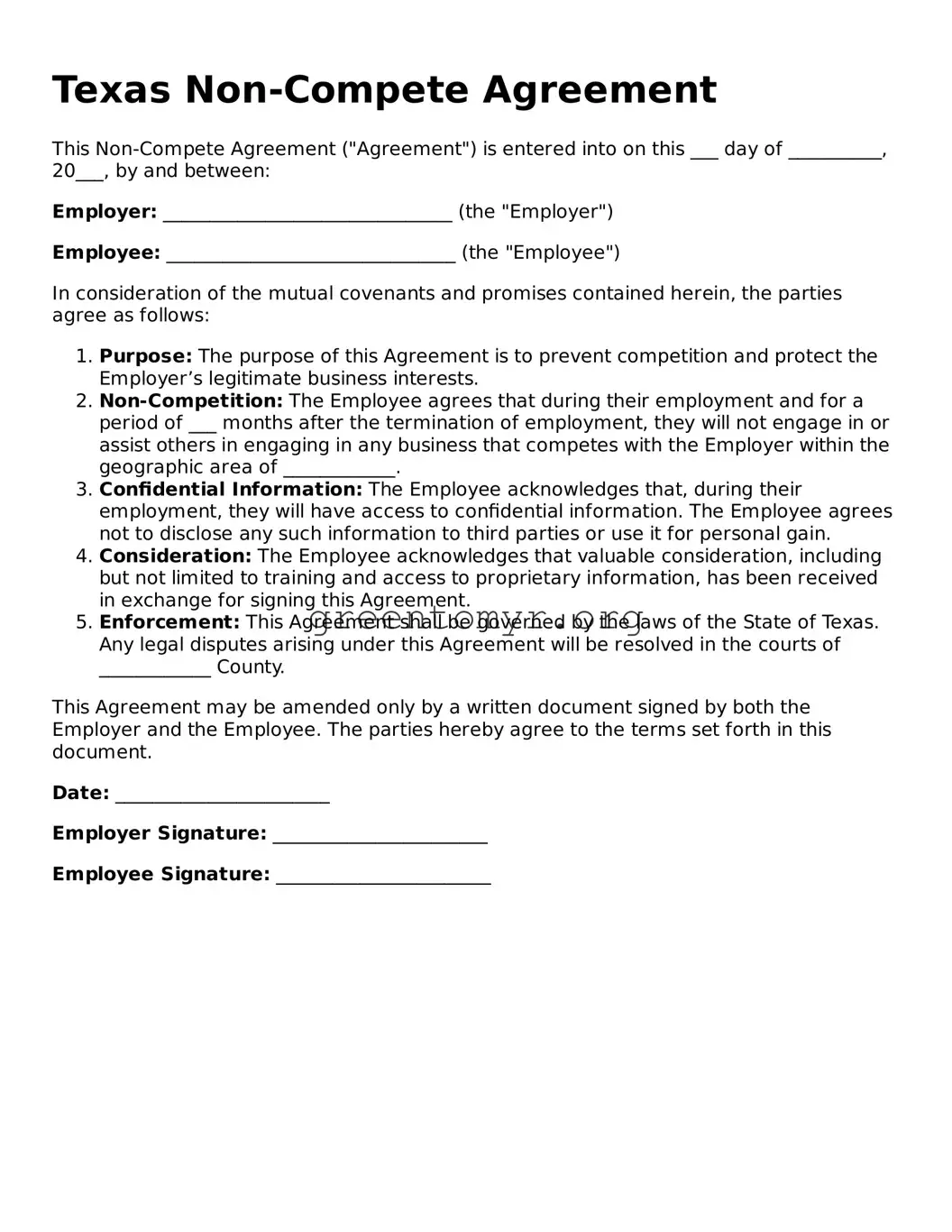What is a Texas Non-compete Agreement?
A Texas Non-compete Agreement is a legal document designed to restrict an employee from working for a competitor or starting a competing business for a specified period after leaving their current employer. Its main purpose is to protect the employer's business interests, such as trade secrets and customer relationships.
Are non-compete agreements enforceable in Texas?
Yes, non-compete agreements can be enforceable in Texas, but they must meet certain criteria. In Texas, a non-compete must be part of an enforceable agreement, include reasonable limitations regarding time, geographical scope, and the business interests it protects. Additionally, the employee must receive consideration for signing the agreement, which usually means some benefit or compensation.
How long can a non-compete agreement last in Texas?
The duration of a non-compete agreement in Texas is not strictly defined by law but should be reasonable. Generally, courts consider a period of one to two years to be acceptable, depending on the specific circumstances of the case. It's essential to tailor the timeframe to align with the particular business interests you are trying to protect.
What is considered 'reasonable' in a non-compete agreement?
Reasonableness can vary based on several factors, including:
-
The nature of the business and the employee's role.
-
The potential harm to the employer if the employee works for a competitor.
-
The geographic area covered by the agreement.
-
The length of the restriction.
Overall, the key is that the restrictions should not be overly burdensome for the employee, while still offering protection to the employer.
Can I negotiate the terms of a non-compete agreement?
Yes, negotiation is often possible when it comes to non-compete agreements. Both the employer and employee should feel comfortable discussing terms. Employees can request modifications to durations, geographic limits, or other clauses that they find onerous. Having an open dialogue about these aspects is important. Legal counsel can provide guidance during negotiations to ensure that terms are fair and clear.
What happens if I violate a non-compete agreement?
If you violate a non-compete agreement, your former employer may take legal action against you. This could include seeking an injunction to prevent you from working for a competitor or damages for any losses incurred. The consequences can be serious, affecting your ability to work in your field. It is advisable to review the terms of your agreement carefully and seek legal advice if you are unsure.
Can non-compete agreements apply to independent contractors?
Yes, non-compete agreements can apply to independent contractors, not just employees. However, to be enforceable, they must still meet the same criteria regarding reasonableness and consideration. Contractors should read these agreements carefully before signing, as they may impose restrictions similar to those faced by employees, affecting future business opportunities.
